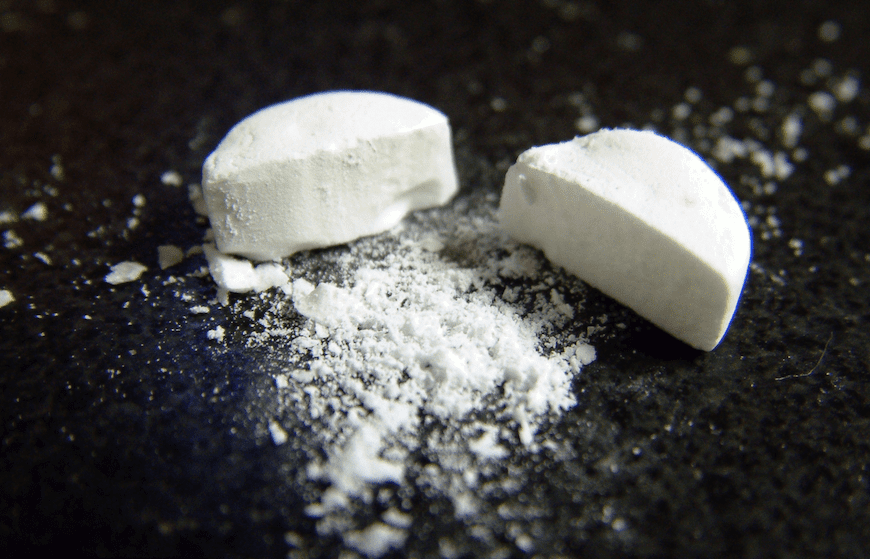Because this piece does not have an abstract, we have provided for your benefit the first 3 sentences of the full text.
Posttraumatic stress disorder (PTSD) is a severe consequence of major trauma and is frequently both chronic and highly disabling. Although there are several medications approved by the US Food and Drug Administration for the treatment of PTSD, an Institute of Medicine report found that the most effective treatments for PTSD are psychotherapies. These psychotherapies have primarily been trauma focused, involving imaginal or in-person exposure to traumatic reminders and other triggers.
See article by Nijdam et al
This work may not be copied, distributed, displayed, published, reproduced, transmitted, modified, posted, sold, licensed, or used for commercial purposes. By downloading this file, you are agreeing to the publisher’s Terms & Conditions.

Posttraumatic stress disorder (PTSD) is a severe consequence of major trauma and is frequently both chronic and highly disabling. Although there are several medications approved by the US Food and Drug Administration for the treatment of PTSD, an Institute of Medicine report1 found that the most effective treatments for PTSD are psychotherapies. These psychotherapies have primarily been trauma focused, involving imaginal or in-person exposure to traumatic reminders and other triggers. More cognitively focused psychotherapies also exist. Yet despite the efficacy of psychotherapy as a first-line treatment for PTSD, large individual differences in outcomes exist, with roughly only half of patients responding to treatment and fewer than that fully remitting.2 In light of the fact that there are few other consistently effective treatments for PTSD, it is both scientifically and clinically imperative to understand who will respond to psychotherapy and why. Nijdam and colleagues3 make an important contribution toward this goal in this issue.
Meta-analyses4-6 of brain structure, brain function, and neuropsychological functioning in PTSD have demonstrated consistent impairments in systems important in emotion (including fear), memory, and executive functions. At the neuropsychological level, moderate effect size (ie, Cohen d ~ 0.5) impairments have been observed in learning and memory and executive functions such as sustained attention.5 These functions involve overlapping neural circuitry in frontoparietal regions, with verbal memory additionally requiring frontal-hippocampal interactions.7,8 In light of the impairments in verbal learning and memory in PTSD and the putative importance of these processes in exposure therapy, Nijdam and colleagues3 sought to determine whether the degree of verbal memory impairment at baseline in patients predicts treatment outcome in a large cohort of patients with PTSD. They did this using data from their recently published study9 that compared brief eclectic psychotherapy (BEP) to eye movement desensitization and reprocessing therapy (EMDR). Both of these therapies involve a central role for trauma memory exposure. The aim of the clinical trial was to determine whether 1 therapy was more effective than the other or led to a more rapid response. Across the 140 patients with PTSD randomized to BEP or EMDR, the authors had earlier found that ultimate treatment outcomes were equivalent, but EMDR led to a more rapid rate of symptom reduction.9
The central finding in the present study is that impaired baseline verbal memory, measured during encoding and short- and long-term retrieval, predicted worse treatment outcome. Moreover, this relationship held similarly for both BEP and EMDR. This study builds in a large sample on an earlier study10 from another group that examined verbal memory in 16 patients with PTSD and found a similar relationship between baseline performance and response to a trauma exposure-based therapy. The study by Nijdam and colleagues3 thus provides critical replication in a much larger sample, which is particularly notable given the relative dearth of psychotherapy treatment-prediction studies in PTSD. Moreover, the fact that 2 treatments were examined, to which patients were randomized, further demonstrates the consistency of the effect. At the same time, however, the greatest weakness of the present study is that it lacks a control arm and did not find differences between the 2 study arms. As such, an alternative explanation that the present results cannot rule out is that having impaired verbal memory predicts poor response to any intervention, including a placebo or low-level control therapy. In other words, it may index an element of illness severity, which, when greater, is associated with less capacity for recovery. The lack of a control arm, moreover, is a weakness in most psychotherapy treatment prediction studies in any disorder, including PTSD.11 Thus, to push the field toward use of baseline measures in guiding treatment selection, future studies would do well to include a control arm or another intervention with likely dissociable mechanisms or predictors.
The findings of Nijdam and colleagues3 carry several important implications derived from the key strength of the study—namely, the replication in a large sample across 2 treatments of the predictive value of pretreatment verbal memory. First, the question now is not whether verbal memory predicts, which this study clearly demonstrates, but rather to what degree does this reflect a specific role for verbal memory (compared to related functions that are also perturbed in PTSD, such as attention)? Are the findings related to psychotherapy outcome specifically or to any intervention? What about cognitive-focused therapies that lack a strong exposure component? Second, it would be important to go beyond behavioral neurocognitive measures and also describe the neurobiological correlates to help unravel the precise mechanisms underlying treatment response. For example, are the findings driven by activity in frontal cortical regions (which may overlap with functions such as attention) or activity in the hippocampus (where volumetric changes have been reported12 in PTSD and found to occasionally associate with verbal memory impairments)?
Third, given their predictive utility, verbal memory measures should be included in every clinical trial for PTSD (and arguably they are important for other disorders as well). These are easy measures to acquire that need little training. To this end, verbal memory has been included in the recently announced set of common data elements for trauma-related research, coordinated through the federally sponsored PhenX Toolkit (http://phenxtoolkitstage.rti.org/). Finally, though effective exposure-based psychotherapies have existed for some time for PTSD, their mechanisms of action have been largely theoretical or based on clinical or self-report scales. The robust findings reported by Nijdam and colleagues,3 even with the concern about lack of a control arm, provide a strong foundation for the utility and mechanistic relevance of at least 1 objective measure. This is a very important trend in the field that should be strongly encouraged.
Finally, a more speculative, but exciting, future direction that this study suggests is that psychotherapy outcome in PTSD may be improved by enhancing patients’ verbal memory capacities prior to treatment. For example, cognitive training that targets this function, and the neural circuits that underlie it, may lead to a brain that is more amenable to the effects of psychotherapy, thus yielding better clinical outcomes. Similarly, pharmacologic or neurostimulation methods could be used to enhance functioning in verbal memory-associated neural circuitry. The fact that this future direction can already be tested reflects the strengths of the findings reported by Nijdam and colleagues,3 which also finally break out of small sample-size experiments that have limited prior treatment prediction efforts.
Author affiliations: Department of Psychiatry and Behavioral Sciences, Stanford University School of Medicine, Stanford, California, and the Sierra Pacific Mental Illness, Research, Education, and Clinical Center (MIRECC), Veterans Affairs Palo Alto Healthcare System, Palo Alto, California.
Potential conflicts of interest: None reported.
Funding/support: None reported.
REFERENCES
1. Institute of Medicine. Treatment of Posttraumatic Stress Disorder: An Assessment of the Evidence. Washington, DC: The National Academies Press; 2008.
2. Bradley R, Greene J, Russ E, et al. A multidimensional meta-analysis of psychotherapy for PTSD. Am J Psychiatry. 2005;162(2):214-227. PubMed doi:10.1176/appi.ajp.162.2.214
3. Nijdam MJ, de Vries G-J, Gersons BP et al. Response to psychotherapy for posttraumatic stress disorder: the role of pre-treatment verbal memory performance. J Clin Psychiatry. 2015;76(8):e1023-e1028.
4. Etkin A, Wager TD. Functional neuroimaging of anxiety: a meta-analysis of emotional processing in PTSD, social anxiety disorder, and specific phobia. Am J Psychiatry. 2007;164(10):1476-1488. PubMed
5. Scott JC, Matt GE, Wrocklage KM, et al. A quantitative meta-analysis of neurocognitive functioning in posttraumatic stress disorder. Psychol Bull. 2015;141(1):105-140. PubMed
6. Kühn S, Gallinat J. Gray matter correlates of posttraumatic stress disorder: a quantitative meta-analysis. Biol Psychiatry. 2013;73(1):70-74. PubMed doi:10.1016/j.biopsych.2012.06.029
7. Niendam TA, Laird AR, Ray KL, et al. Meta-analytic evidence for a superordinate cognitive control network subserving diverse executive functions. Cogn Affect Behav Neurosci. 2012;12(2):241-268. PubMed doi:10.3758/s13415-011-0083-5
8. Kim H. Neural activity that predicts subsequent memory and forgetting: a meta-analysis of 74 fMRI studies. Neuroimage. 2011;54(3):2446-2461. PubMed doi:10.1016/j.neuroimage.2010.09.045
9. Nijdam MJ, Gersons BP, Reitsma JB, et al. Brief eclectic psychotherapy v eye movement desensitisation and reprocessing therapy for post-traumatic stress disorder: randomised controlled trial. Br J Psychiatry. 2012;200(3):224-231. PubMed doi:10.1192/bjp.bp.111.099234
10. Wild J, Gur RC. Verbal memory and treatment response in post-traumatic stress disorder. Br J Psychiatry. 2008;193(3):254-255. doi:10.1192/bjp.bp.107.045922 PubMed
11. Barsaglini A, Sartori G, Benetti S, et al. The effects of psychotherapy on brain function: a systematic and critical review. Prog Neurobiol. 2014;114:1-14. PubMed doi:10.1016/j.pneurobio.2013.10.006
12. Woodward SH, Kaloupek DG, Grande LJ, et al. Hippocampal volume and declarative memory function in combat-related PTSD. J Int Neuropsychol Soc. 2009;15(6):830-839. PubMed doi:10.1017/S1355617709990476
Submitted: December 22, 2014; accepted January 5, 2015.
Corresponding author: Amit Etkin, MD, PhD, Department of Psychiatry and Behavioral Sciences, Stanford University, 401 Quarry Rd, MC: 5797, Stanford, CA 94305-5797 ([email protected]).
J Clin Psychiatry 2015;76(8):e1035-e1036 (dx.doi.org/10.4088/JCP.14com09752)
© Copyright 2015 Physicians Postgraduate Press, Inc.
This PDF is free for all visitors!





